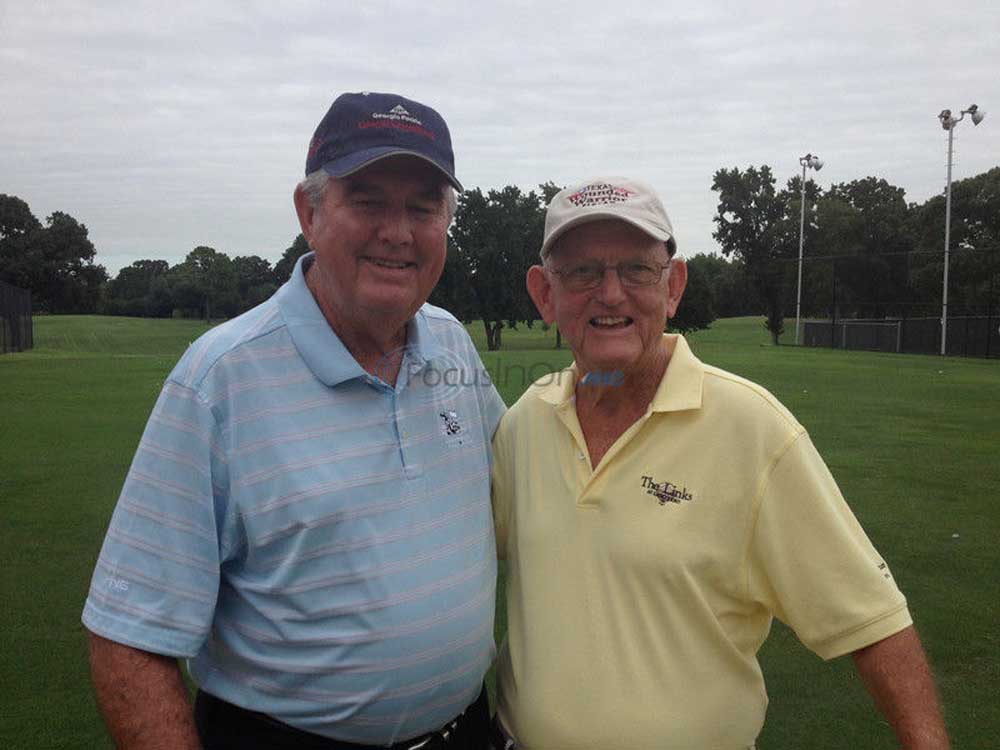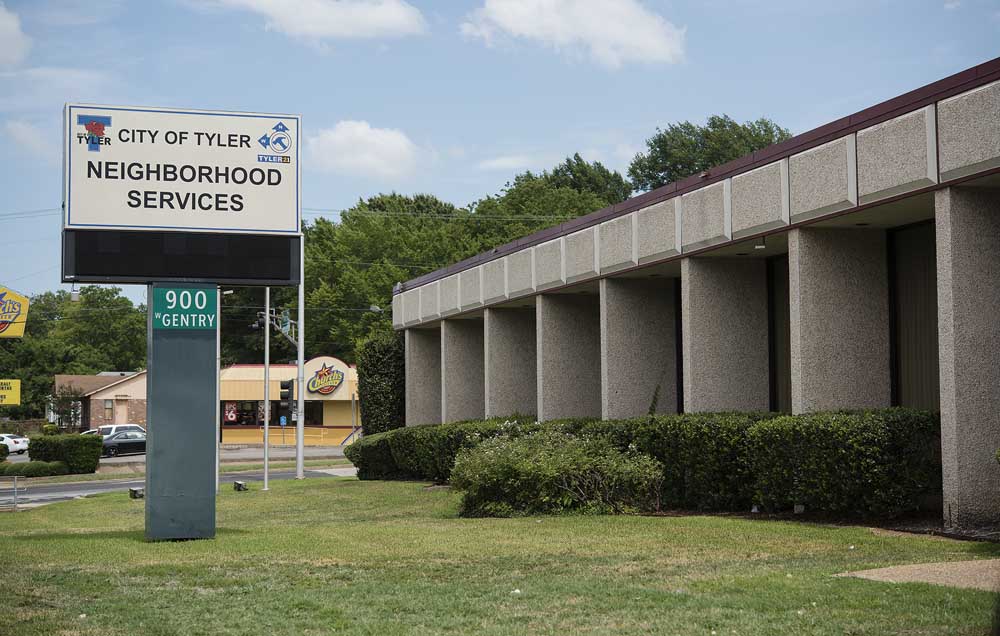Charles Coody: 1971 Masters Champion
Published 1:22 am Tuesday, October 1, 2013

- Golfing greats Charles Coody (left) and Jacky Cupit take time to pose for a photo before Monday’s Wounded Warrior Foundation Pro-Am at Willow Brook Country Club. Photo by Phil Hicks
Charles Coody does not hit the links much anymore.
But the 1971 Masters champion makes exceptions for special occasions, such as Monday’s Sixth Annual Texas Wounded Warrior Foundation Celebration and Pro-Am at Willow Brook Country Club.
“This is fantastic,” the Abilene resident said. “The Wounded Warrior programs have expanded across the country with more and more people coming involved. President (George W.) Bush especially has gotten very involved, and I think that is tremendous.”
Coody does mind making the trip to East Texas for a good causes. He is friends with Dick Goetz (chairman of the Texas Wounded Warrior Foundation) as well as Roy Pace and Jacky Cupit (runner-up in the 1963 U.S. Open at The Country Club in Brookline, Mass.), who are heavily involved in the First Tee of Longview program.
“Golf has been very good to us, and if there is an opportunity to give back some way, we love to do so,” said Coody, who was in the Air Force from 1960 to 1963.
Coody, known as one of the all-time great iron players, was in town to play 18 holes with the soldiers.
“I really gotten away from (golf),” he said while taking a break on the driving range as he and Cupit warmed up. “Every time I think about it, it is with a little bit of remorse. I love to play golf. When you are not prepping yourself to go play in a golf tournament — not getting prepared — the urgency of practicing and working on your short game … and when you do go play, quite frankly, you don’t like what you see. You don’t hit good golf shots and you hit a lot more bad shots than you ever hit.
“Unless it is a beautiful day like today, you’ll say I will wait until tomorrow.”
Coody has been playing golf since a very young age. His father encouraged him to play.
“When my father came home from the (World War II), I was 7 or 8 years old and I hadn’t seen much of him in three, three-and-a-half years,” the 76-year-old said. “I wouldn’t let him out of my sight. I was very lucky. My dad would let me go wherever he went — I was welcomed to tag along.
“He started playing a little bit of golf and I was the bag boy. Occasionally, he would let me hit a shot, and I started getting interested.”
Coody started playing seriously about age 12, but he was thrown a curveball the next year.
“The summer when I was 13, I was diagnosed with the nonparalytic type of polio … very, very fortunate I had no ill effects from it, but they wouldn’t let me play any contact sports for at least a year,” he said.
His father told the doctor the young Coody had been playing golf. His physician said to continue “because walking and the exercise would help.”
“I start playing every day. I already liked golf, but then I fell in love with it,” he said. “During the summertime, I played at least 36 to 45 holes five or six days a week. The only day I didn’t was on Sunday when I went to church on Sunday morning and went to the movie with my girlfriend on Sunday afternoon.”
His love for the game and his athletic ability earn him a golf/basketball scholarship to TCU. He is a graduate of Stamford High School, some 40 miles north of Abilene.
“I was a pretty decent basketball player, but I knew after my freshman year that basketball was just going to interfere with golf,” Coody said.
After the military, he turned pro.
“If there is a disappointment in my career on tour, I didn’t win more tournaments,” he said. “I don’t mean to say winning 30 or 40 tournaments, but I felt like I was a good enough player to win 10 or 12 tournaments, but I didn’t. I won three, and fortunately I won Augusta, which was a good one.”
He finished two strokes ahead of Jack Nicklaus and Johnny Miller to win the 1971 Masters.
Coody stopped playing at Augusta National in 2006 but still attends the Champions Dinner each Tuesday before the tournament.
“They have the dinner there on Tuesday night in the upstairs of the original part of the club house, and I’ve told people I will continue to go until somebody has to carry me up the stairs,” he said. “At that point, if I can’t find anyone to carry me up the stairs, I won’t be able to go.”
Another highlight of Coody’s career was playing on the 1971 Ryder Cup team and being a part of the U.S. victory in St. Louis.
“It is a honor,” Coody said of representing your country. “When you step up to the tee and someone says representing the United States of America and they call your name, you get a little bit of a different feeling.”






